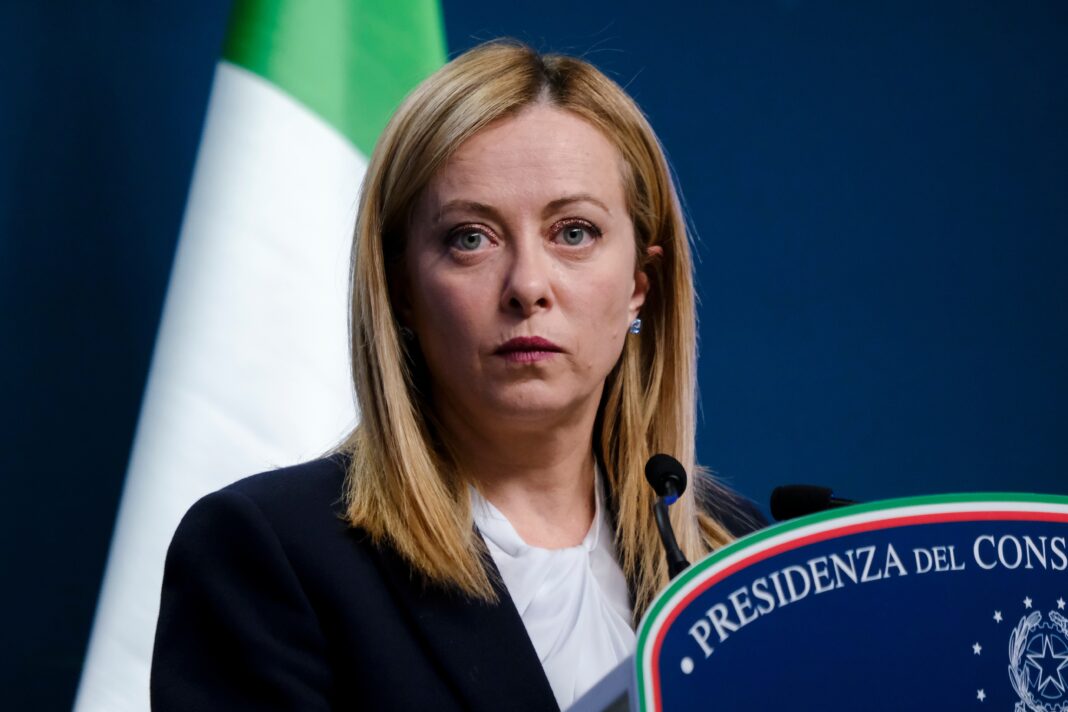by Miriam Rossi* – Unimondo**
On 29th December the parliamentary activity for 2023 ended with the approval of the budgetary manoeuvre for the new year. The budget is now law and, among the various economic measures, there are facilitations for first home mortgages, light contributions for certain categories of people, support for corporate welfare, postponement of the introduction of new taxes (sugar tax and plastic tax), measures in favour of the film industry and increases in some taxes, including excise duties on tobacco.
Unimondo interviewed Giulio Marcon, spokesman for the Sbilanciamoci campaign, which since 1999 has brought together 51 organisations and networks of Italian civil society committed to building an economy based on principles of economic and social justice, environmental sustainability, peace and solidarity, formulated in a genuine ‘counter-finance’.
The negative verdict on the finance bill presented by the government of Prime Minister Giorgia Meloni is clear: “It is an unjust budget law that favours the privileged, worsens the situation of the poor and disadvantaged, encourages tax evasion, exacerbates the precariousness of the labour market, gives only crumbs to health, education and welfare and provides no answers to the drama of work, inequalities and the need to build a new development model and accelerate the ecological transition in our Country”.
In a two-page summary, the organisations that make up Sbilanciamoci criticised in particular the extension of the 15% flat tax to incomes up to 85,000 euros, which distorts the principle of progressive taxation enshrined in the Constitution and is a measure that favours middle and high incomes. The abolition of tax bills of less than 1,000 euros, indiscriminately for all income brackets, and the absence of any significant measures against tax evasion are two more pieces that wink at a well-defined electoral class. Certainly not to the figures of an Italy that, according to the Ministry of Finance, has a total gap in lost tax revenue of around 96.3 billion euros in the three-year period 2018-2020.
The reduction in the number of beneficiaries of social assistance, the defunding of the national public health system, public education and the resources to guarantee the right to housing are all attacks on social legislation to combat poverty, including educational poverty. The further reduction of 8% of the funds for international cooperation, in line with the international commitment of the UN to reach a contribution of 0.7% of GDP by 2030, the allocation of further funds to the detention and repatriation centres for migrants, the increase in military expenditure and the reduction in public service budgets are all choices that can be criticised.
Sbilanciamoci does not confine itself to criticism. For years, it has consistently produced reports projecting public spending according to priorities such as rights, peace and the environment. Projected revenues and expenditures for 2024 amount to 53,806.5 million euros”. Revenues are guaranteed mainly by a tax and finance system that mainly affects the wealthier classes: the introduction of a wealth tax, higher taxes on luxury goods, an inheritance tax and an increase in taxation on incomes above 100,000 euros are proposed, clearly against the total abolition of the flat tax. The decriminalisation of drug use is also expected to bring in 700 million euros, by reducing health costs linked to the effects of counterfeit substances and, above all, by reducing prison costs due to the non-prosecution of the crime.
The revenue generated will finance the construction of schools (1,000 million euros) and essential services. “Free university and public transport for students, but also support for universities, halls of residence and university canteens,” explains Marcon, “are essential for a Country looking to the future. We are also calling for the introduction of a student income, which would allow students to concentrate on their studies without having to worry about their livelihood.”
Today, scholarships offered by Italian universities are scarce and there is a discrimination between students who have a family that can afford to support them and those who have to combine their studies with odd jobs in order to support themselves. An unfair discrimination that could be remedied by investment. And again, revenue from a reduction in military expenditure (a total of €5,050 million) in favour of investment in public services (€189 million), international cooperation (€1,000 million) and the launch of a public search and rescue mission at sea (€1,000 million). One lesson learned from the Covid-19 epidemic is that public health funding should be equivalent to 7% of GDP, or around €10,000 million.
On the cover photo, Italy’s Prime Minister Giorgia Meloni ©Alexandros Michailidis/Shutterstock.com
* Miriam Rossi (Viterbo, 1981). An expert in human rights, the UN and international politics, she is a PhD candidate in the history of international relations and organisations. After 10 years in the world of research and as many in the field of international cooperation, she is currently working at the University of Trento for the wider transfer of knowledge and scientific knowledge.
** Unimondo, founded on 10 December 1998 under the auspices of the Fontana Onlus Foundation, is an online news outlet dedicated to providing authoritative content on peace, sustainable human development, human rights and environmental issues. It offers diverse and timely information, amplifying the voices of different facets of Italian and global civil society. As the Italian hub of the OneWorld network, founded in London in 1995, it is part of a global network with 11 centres worldwide and 1,600 partner associations.
























